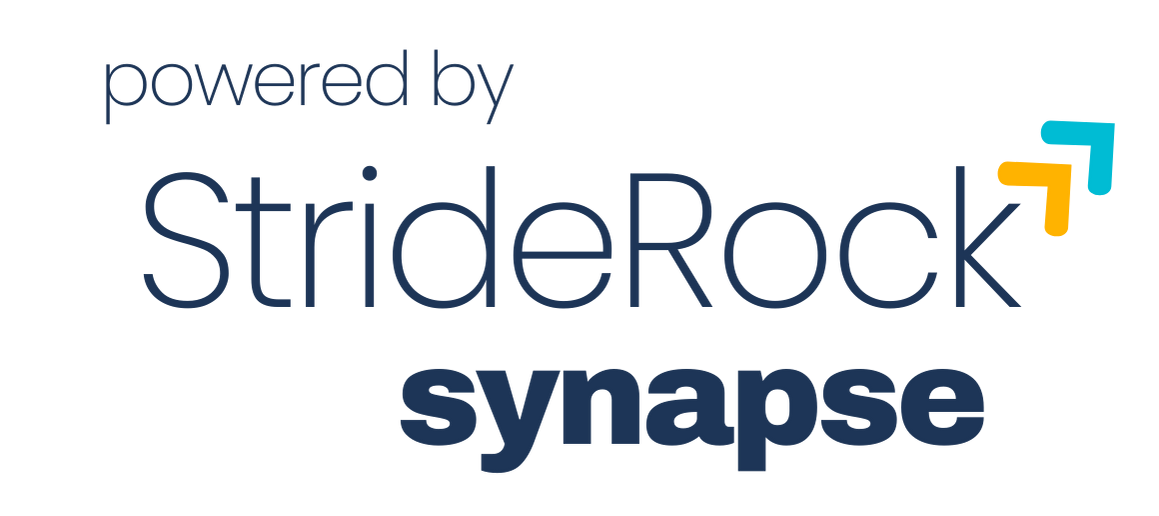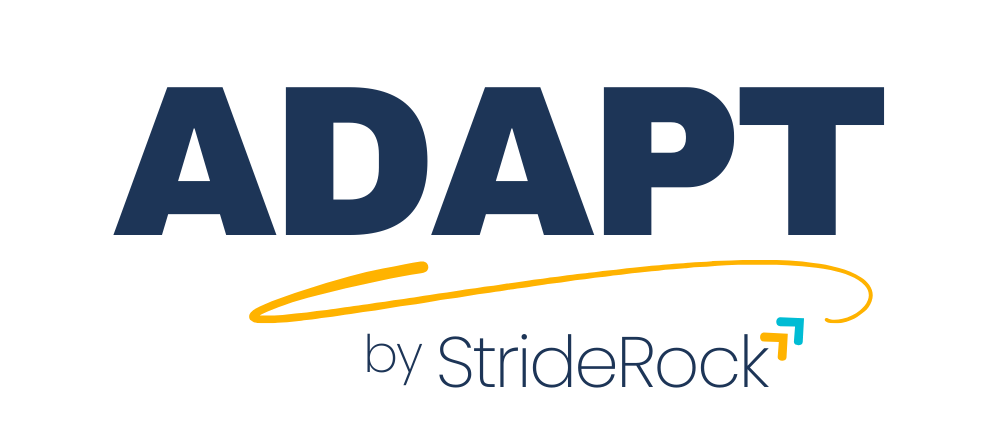Beyond Hard Bargaining: The Evidence-Based Path to Negotiation Success

In corporate environments, negotiation and influence are often portrayed through images of aggressive tactics, poker-faced bargaining, and strategic deception. Popular media reinforces these stereotypes, creating the impression that effective negotiators must be tough, unyielding, and occasionally willing to bend the truth. Many professionals enter negotiations believing they must adopt a competitive, even adversarial, stance to succeed.
But what does the research actually tell us about what works?
We utilized StrideRock Synapse to analyze findings across neuroscience, behavioral psychology, and negotiation research. The synthesis indicates the most effective negotiation approaches often differ dramatically from these common stereotypes.
The Misconception of “Hard Bargaining”
Many professionals believe effective negotiation requires aggressive positioning, limited information sharing, and occasionally misleading the other party. This perception likely stems from high-profile examples of contentious negotiations and dramatized portrayals in business literature and entertainment.
However, research consistently demonstrates that these “hard bargaining” tactics often produce suboptimal outcomes, damaged relationships, and implementation challenges that undermine long-term value. As Shell (2006) notes in his comprehensive analysis of negotiation effectiveness, the most successful negotiators rarely conform to the stereotype of the hard-driving competitor.
Four Key Elements of Effective Negotiation
Our research synthesis reveals that sustainable negotiation success rests on four interconnected elements that challenge conventional wisdom about what drives results:
1. Strategic Communication That Activates Collaboration
Contrary to the image of negotiators as aggressive demanders or silver-tongued persuaders, research shows that the most effective negotiators excel at asking questions and listening. Studies by Rackham and Carlisle found that skilled negotiators ask twice as many questions as average negotiators and spend significantly more time understanding the other party’s perspective before presenting their own position.

This questioning approach serves multiple strategic purposes:
- It uncovers critical information about underlying interests
- It engages the counterpart’s analytical thinking processes
- It creates psychological investment in the discussion
- It builds the foundation for collaborative problem-solving
The research reveals that particular communication approaches—especially the strategic use of specifically framed questions—activate more thoughtful cognitive processing and lead to more sustainable agreements than aggressive demands or overwhelming presentations.
2. Authentic Engagement That Builds Trust
Many assume negotiation requires putting on a persona—appearing tougher, more confident, or less concerned than you actually are. This belief creates significant challenges for professionals who find such performances uncomfortable or inauthentic.
Our research synthesis suggests a different approach. Studies consistently show that negotiators who operate with genuine consistency—aligning their words, actions, and values—build the trust necessary for optimal outcomes. This doesn’t mean revealing every thought or concern, but rather maintaining personal integrity throughout the process.
The misconception that negotiation requires deception not only creates ethical dilemmas but also practical ones. Research demonstrates that most people are far worse at deception than they believe, and attempts at inauthentic behavior often backfire by diminishing trust and credibility.

3. Credibility That Enables Influence
In today’s information-rich environment, claims and assertions face unprecedented scrutiny. Our research synthesis shows that credibility—a combination of relevant expertise, impartiality, and trustworthiness—serves as a critical factor in negotiation effectiveness.
Contradicting the stereotype that negotiation success comes from bluffing or exaggeration, studies demonstrate that maintaining credibility through accurate information and appropriate substantiation creates significant advantages:
- It increases the weight given to your proposals
- It reduces unnecessary resistance and skepticism
- It builds the foundation for implementation follow-through
- It enhances your reputation for future negotiations
As Cialdini’s research on influence demonstrates, perceived credibility significantly impacts how information is processed and valued during decision-making conversations.
4. Relationship Dynamics That Shape Outcomes
Perhaps the most significant insight from our research synthesis concerns the role of relationships in negotiation effectiveness. While popular images portray negotiation as a transactional battle of wits between opponents, research consistently reveals that relationship quality serves as a critical determinant of negotiation outcomes.
This doesn’t mean simply being friendly. Rather, it involves developing specific capabilities that enhance mutual understanding and psychological safety:
Perspective-taking
The cognitive ability to understand another’s viewpoint
EmpathyTrust
The emotional capacity to connect with others’ experiences
Trust-building
The behavioral consistency that creates psychological safety
Studies comparing face-to-face negotiations with more distant forms consistently show that stronger relationship connections facilitate better information exchange, more creative problem-solving, and more durable agreements.
The Evidence-Based Path Forward
These research insights challenge many common assumptions about what drives negotiation success. They suggest that effectiveness comes not from aggressive tactics or manipulative techniques, but from a more sophisticated understanding of the human dynamics involved in complex agreements.
However, understanding these principles represents only the first step. Research also demonstrates that negotiation effectiveness requires more than intellectual knowledge—it demands practical skill development through structured learning and deliberate practice.
The reality is that most professionals receive minimal formal training in negotiation despite its critical importance to business results. This creates a significant gap between the evidence-based understanding of what works and the practical ability to implement these approaches in high-stakes situations.
Bridging the Capability Gap
At StrideRock Strategic Consulting, our ADAPT™ Accelerator program addresses this capability gap through a comprehensive methodology developed and continuously refined through StrideRock Synapse. The program provides structured approaches for developing the practical skills necessary to implement evidence-based negotiation techniques in real-world business contexts.
Unlike approaches based on outdated stereotypes or simplistic tactics, the ADAPT™ methodology integrates insights from multiple disciplines to help professionals navigate the complex human dynamics of negotiation with confidence and skill.
By developing capabilities in strategic communication, authentic engagement, credibility building, and relationship management, participants gain the ability to achieve better business outcomes across diverse negotiation scenarios—from high-value external agreements to cross-functional alignment to organizational change implementation.
The Complete Picture: Addressing All Negotiation Realities
While our research demonstrates the effectiveness of collaborative, relationship-based approaches in many scenarios, the complete negotiation landscape encompasses a broader range of situations that require additional skills and understanding.
Navigating Competitive Environments
The reality is that professionals will inevitably encounter highly competitive counterparts, significant power imbalances, and scenarios where interests are genuinely opposed. Effective negotiation capability must include:
Relationship Duration
The ability to recognize and respond to aggressive tactics without escalating conflict
Leverage Assessment
Systematic approaches for identifying and sometimes enhancing your bargaining position
Strategic Adaptation
The judgment to adjust your approach based on the specific negotiation context
The Situational Spectrum
Research shows that negotiation approaches must be calibrated to specific contexts:
Defensive Skills
One-time transactions may warrant different approaches than ongoing partnerships
Zero-Sum Elements
Some negotiations contain truly competitive components that must be addressed directly
Power Dynamics
Understanding how organizational position, information access, and alternatives create negotiation leverage
A More Effective Path
The research is clear: while negotiation sometimes requires addressing competitive dynamics, effective approaches generally look different from common stereotypes of hard bargaining and aggressive tactics. By developing a comprehensive set of evidence-based capabilities, professionals can navigate the full spectrum of negotiation scenarios with confidence and skill.
The StrideRock ADAPT™ Accelerator addresses this complete picture of negotiation reality—providing frameworks for both collaborative relationship-building and strategic management of competitive situations. This comprehensive methodology, developed through StrideRock Synapse, equips professionals with the versatile capabilities needed for sustainable negotiation success across diverse business contexts.
If you’re interested in developing these critical capabilities for yourself or your organization, we invite you to explore how the StrideRock ADAPT™ Accelerator can help you achieve breakthrough results in your most important agreements and influence situations.

References ↓
(Hover to expand)




